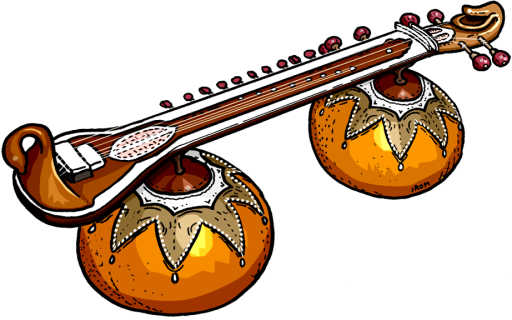
Pandit Jawaharlal Nehru said of her: "Who am I, a mere Prime Minister before a Queen, a Queen of Music?"
Mahatma Gandhi declared he would prefer to hear her recite the words of the song (Hari tum Haro) rather than have someone else sing it.
Sarojini Naidu magnanimously bestowed upon her her own appellation of “Nightingale of India.”
Ustad Bade Ghulam Ali Khan called her ‘Suswaralakshmi’, Lata Mangeshkar referred to her as “Tapaswini” and Kishori Amonkar labelled her the “Aathvaan Sur”.
From the famed violinist Yehudi Menuhin who was moved to tears after her performance, to Zubin Mehta who was reluctant to take the stage as a follow-up to her act, to the entire audience at the Rachmaninoff Hall in Moscow whose standing ovation went on unceasingly even after her car had left the site, she captured the hearts of listeners across the globe.
The first musician to be awarded the prestigious Bharat Ratna, the first to receive the Ramon Magsaysay award, the first Indian classical musician to sing at the UN General Assembly in 1966.
The first voice millions of households wake up to every morning, joining in her wake-up call to Lord Venkatesa.
Who else would we be talking about other than the Goddess of Music incarnate,
M.S. Subbulakshmi?
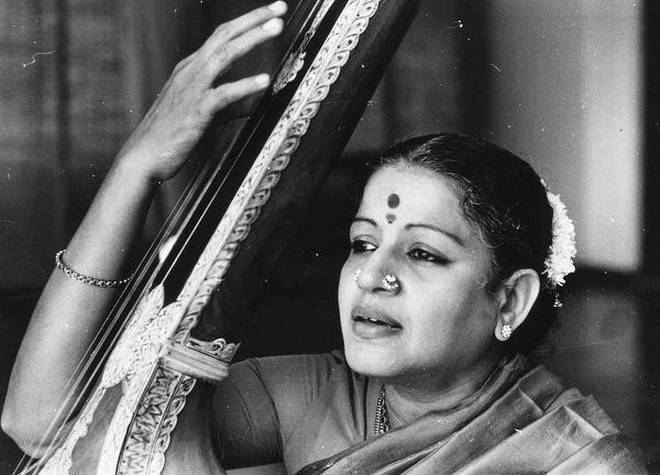
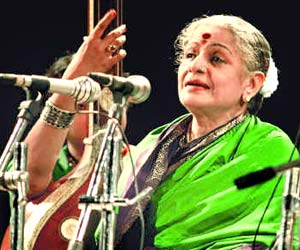
Today, September 16 is her 107th Birth Anniversary.
Not that one needs a reason to speak of her here on this forum, someone whose name is synonymous with music.
Someone who lived and breathed music.
Like APJ Abdul Kalam said of her: “MS was born to music, she lived as music and finally merged with the god of music.”

To adapt and mould yourself to different genres, attune yourself to the pulse of the world and thereby reach a wider audience is one kind of artisanship, but to stay true to what you know and yet pull in the audiences by the force of pure artistry is quite another.
I believe M.S. belonged to the latter category of artists.
She stayed rooted in a traditional, conservative, insular, some may even say harsh and rather inflexible form of Classical music and yet appealed to audiences not just pan-India but globally.
What allowed her to do so when powerhouse artists that were more technically adept before and after her failed to?
As Carnatic vocalist T.M. Krishna puts it:
The difference between a good musician and a great musician is the skill of communication. M. S. Subbulakshmi was one of the greatest communicators. Everybody who went to her concerts would come out feeling one with her and her music.
And I think everyone who has listened to her will agree that she had the ability to form that connection with her audience. Her voice seemed to emerge from the depths of her soul and find its way to the listener’s. And perhaps because her ultimate target audience was the Almighty, the devotion in her voice rings true. Perhaps her voice served as a conduit, a direct line connecting us to the Supreme Power. And that’s why we feel so moved when we hear her.
This prowess cannot be all learned. It’s got to be innate. And it’s not a stretch to believe that M.S. had received this gift from divinity itself since she was born into a family of traditional devadasis whose very livelihood was to sing praises of the Lord in temples. It’s as if the Gods had a vested interest in gifting her that voice – so they could hear their own praises sung to perfection.
Referred to by her initials as simply M.S. or more fondly by her fans as M.S. Amma, Subbulakshmi was born Kunjamma on September 16, 1916 in Madurai.
M.S. was initiated into music by her grandmother, Akkammal who played the violin and her mother, Shanmukhavadivu, who was a veena player. She also learned Carnatic music from Semmangudi Srinivasa Iyer and Hindustani music from Pandit Narayanrao Vyas.
From her debut in Kumbakonam, to her solo stage performance at the Rockfort temple, Trichy to becoming a recording star in Chennai, her musical journey was unstoppable.
In Chennai, she met her future husband, T. Sadasivam, a freedom fighter and nationalist writer who went on to influence her career in a huge way, including her short-lived foray into films.
M.S starred in a few films: Sevasadanam (based on Munshi Premchand’s best selling work), Shakuntalai, Savithri and of course, the landmark Meera, directed by Ellis Dungan, the Hindi version of which turned her into a national sensation. People believed she was Meera incarnate.
The story goes that the Maharana of Udaipur at the time told Sadasivam after hearing M.S.’s rendition of ‘Kaatrinile varum geetham’ that had the times been different he would have pledged his entire kingdom to her for that song. As it was, he gave them carte blanche to use his palace, elephants, horses, even offering up hundreds of extras that would have otherwise cost them a fortune.
The films she acted in were feminist and spoke of women empowerment, which seem to be reflected from M.S’s own life and choices. Even her name is matrilineal – the ‘S’ in her initial stands for her mother’s name, Shanmukhavadivu.
Meera was to be her last film after which she focused completely on her musical career.
.jpg)
Her Sanskrit pronunciation was painstakingly clear, and she insisted on getting the diction right, no matter the language she was singing in. You could use her renditions of shlokas to learn how to pronounce them right – they were textbook perfect as were her renditions of kritis.
She took lessons from stalwarts such as Dilip Kumar Roy, Begum Akhtar, Siddheshwari Devi to get her Bengali, Urdu and Hindi diction right.
Her humility is often spoken about. There’s a popular story told of how when the Govt of Chennai wanted to rename the street where she lived after her, she politely declined saying the honor should be given to her peer, D.K. Pattamal who had lived on the same street for longer.
I recall reading another oft circulated story about her routine. She would start her day early with a cup of filter coffee and idli, then begin her riyaz tuning her pitch with her tanpura. She would then go about her daily chores, singing all along and when she returned after hours, her voice would still be in sync with the instrument.
She had critics, blasphemous as it may seem to some of us.
Some would say her global popularity was the result of aggressive and shrewd marketing by her husband, Sadasivam. Others would accuse her of hiding behind easy and light compositions such as bhajans and abhangs and shorter alapanais (long alapanais were a distinctive feature in most Carnatic music concerts and recordings) to hide her lack of prowess. Still others called out her lack of ‘creativity’ and improvisation techniques on stage.
M.S. herself has confessed to trembling with anxiety before every concert. “My greatest fear is giving performances. I feel I am responsible for the audience but I am also scared of them,” she is quoted as having said.
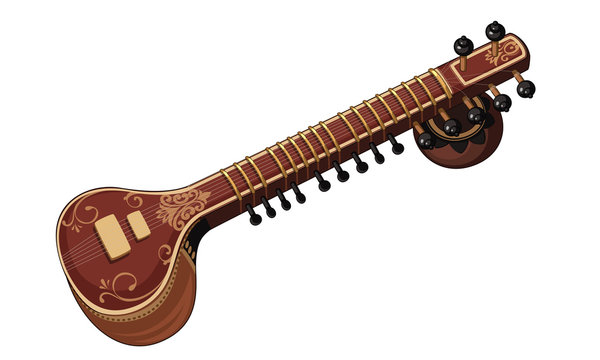
I do not recollect my life without her voice in it. It’s as embedded in me as the sounds of Mother Nature - the lilt of a sweet birdsong or the rhythmic patter of rainfall or the melodious tinkling of a waterfall.
Her voice has been a soothing, reassuring companion on most occasions as also on non-occasions: whether it’s a wedding or a festival or a lazy Sunday morning that stretches for hours, or an evening after a hard day, deep in conversation, her voice playing in the background.
Be it her Annamacharya Kritis, her Vishnu Sahasranamam, her Nama Ramayanam, her Hanuman Chalisa, her Ganesha Pancharatnam, her Meera Bhajans or her Kanakadhara stotram, they and she have been and will remain a ubiquitous, indelible presence in my life.
Years ago, when I was too young to discern or even understand the import of what I was witnessing, I was fortunate & blessed to attend what would be one of her last concerts (she stopped performing after Sadasivam’s death) in Mumbai.
I may not remember specifics of the songs she sang but my ears still reverberate with the hushed but awed silence of the audience, the ‘dheem tana’ of her Thillana and the image of MS Amma still lingers: her trademark Kanjeevaram saree, her diamond nose ring, the jasmine and firecracker adorning her hair, a large vermilion dot shining on her forehead, a beatific expression on her face, eyes closed, head turned blissfully heavenwards, lost in the music.
And that image brings to mind C. Rajagopalachari’s lyrics that she sang as an ode to the elusive, invisible Lord & my heart echoes “Kurai onrum illai” (I have no regrets).
![]()
I’m posting some of my favorite MS songs, some popular, others not so much but just as dear to me.
I was talking to a young friend the other day and she said she had not heard of MS apart from her most popular works, Suprabhatam and Vishnu Sahasranamam.
I’m hoping there will be more of her work posted on here.
You are also welcome to post trivia on her life.
P.S. to the GMs: Can this be made GA?






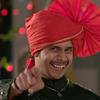



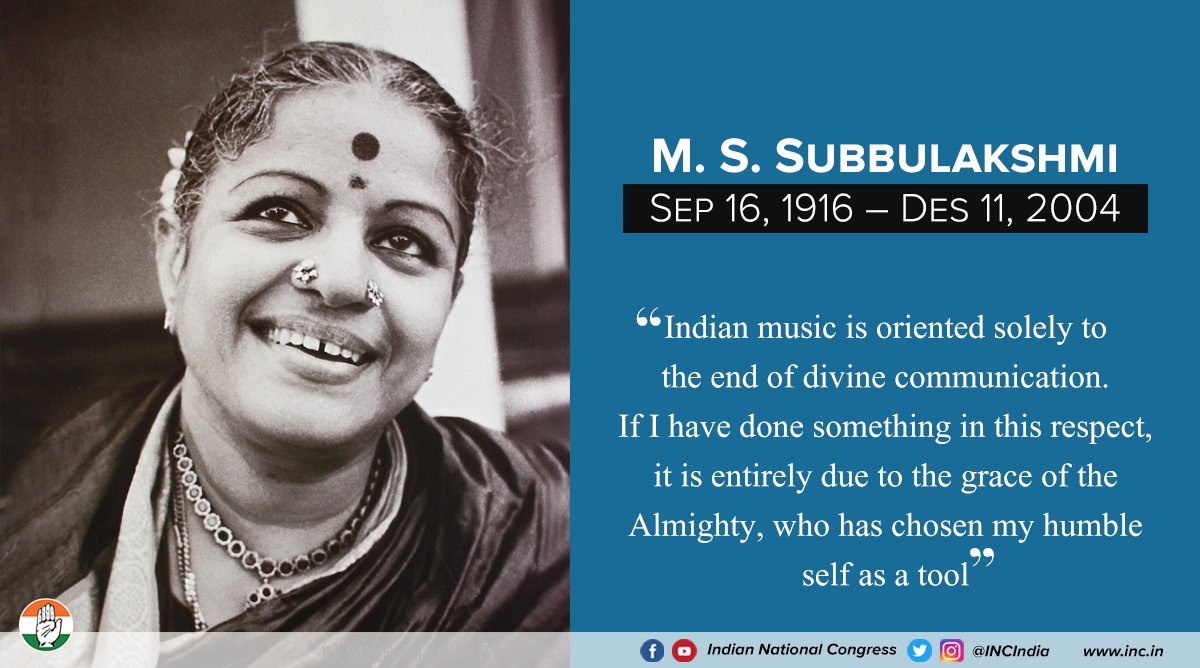
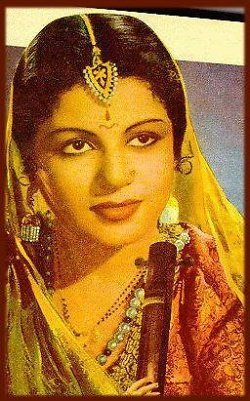
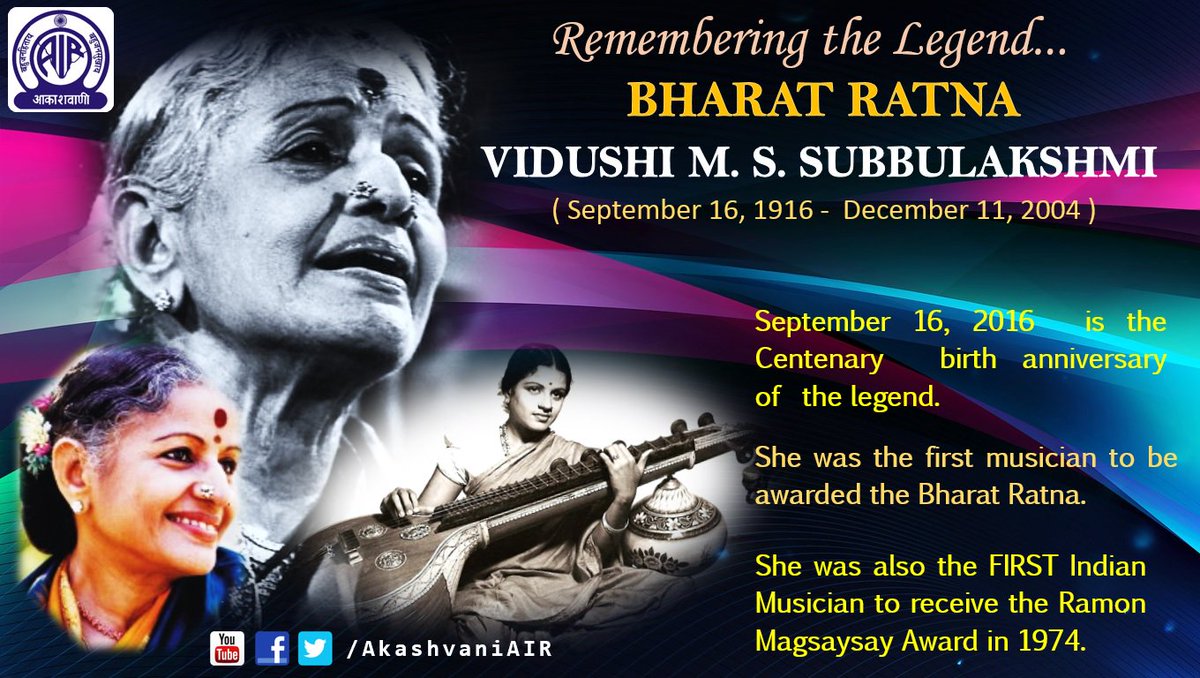

comment:
p_commentcount